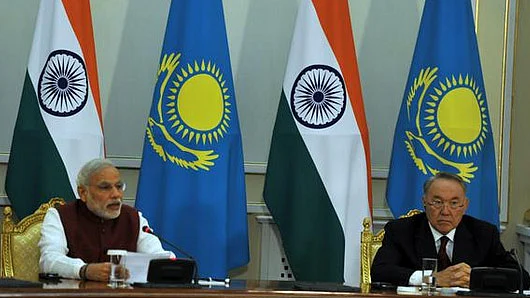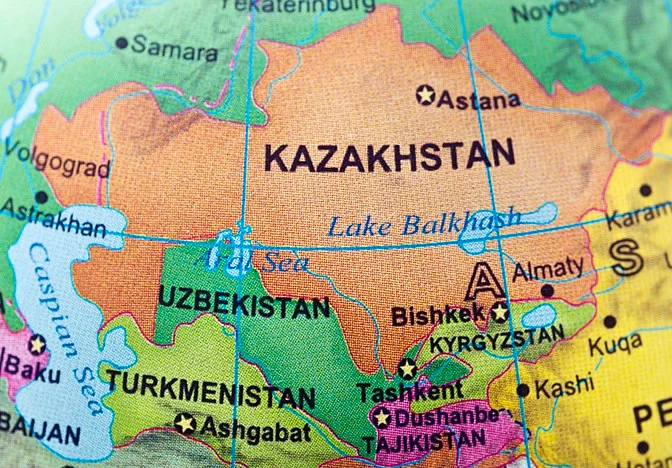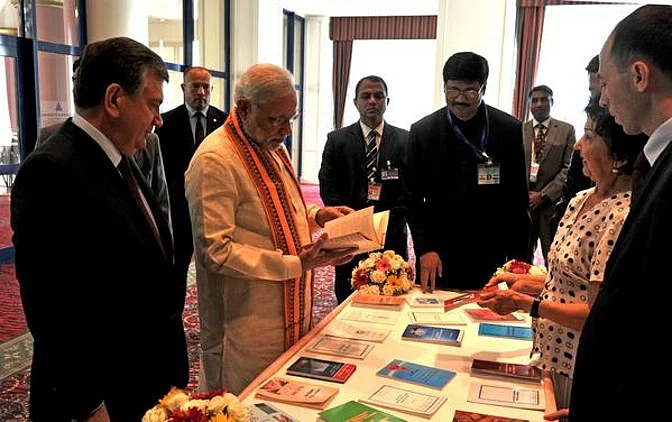Taking Central Asia on Board
- Neglect of the Central Asian states by India has been particularly stark over the last 20 years
- Modi’s visit helped to advance our agenda of cooperation across diverse areas such as security and defence
- The challenge will be to sustain the intense engagement in the coming months
- India will have to demonstrate that it has the ability to fulfill its commitments on time
The recent visit by Prime Minister Narendra Modi to the five Central Asian states has provided a significant impetus to his foreign policy doctrine that was launched on his assumption of power last year. Modi started his term by focusing on the neighbourhood. He invited leaders of SAARC countries, including the Mauritian prime minister, to his swearing-in ceremony.
This was followed by his initiatives Act East and Link West Policies, revitalising contacts with major powers, and strengthening ties with our maritime neighbours in the Indian Ocean by embarking on “’Sagaryatra” in March, 2015.
The Central Asian States – Kazakhstan, Uzbekistan, Turkmenistan, Kyrgyzstan and Tajikistan – are a part of our extended neighbourhood. Since their independence in 1991, none of our prime ministers has visited all of them. P V Narasimha Rao came closest when he visited four of the five states, two of them in 1993 and two others in 1995. Our neglect of this region has been particularly stark over the last 20 years.
Modi’s decision to strengthen engagement with Central Asia is a recognition of the growing significance of this region in regional and international affairs. It is also a logical extension of his neighbourhood policy which has yielded impressive dividends in the short period since he assumed office. We enjoy historical, cultural and civilisational links spanning more than two millenia with this region.
The problem of Pakistan’s refusal to provide access to us through its territory to this region became more acute with the disintegration of the Soviet Union in 1991 when these countries emerged as independent states. The absence of land connectivity has posed a serious hindrance to our efforts to strengthen relations with these countries.
Serious Engagement

Modi’s visit has sent a strong and unambiguous message to these states, the region as well as internationally that India is serious to strengthen its engagement with these countries. The visit enabled PM to establish personal rapport with leaders of these countries. Injection of his personal charisma, energy and enthusiasm immensely aided the discussions. The visit helped to significantly advance our agenda of cooperation across diverse areas of energy, trade, industry, infrastructure, connectivity, security, defence and cultural cooperation.
Kazakhstan, Turkmenistan and Uzbekistan have vast reserves of untapped energy including oil, gas, uranium, coal and other minerals and metals. These can help satisfy our growing energy needs. An agreement was signed to import uranium ore from Kazakhstan – 5,000 tonnes over five years – as also from Uzbekistan.
It was decided to rapidly implement the TAPI project to supply gas from Turkmenistan to India. Emphasis was placed on Indian companies obtaining oilfields in Kazakhstan to meet our burgeoning energy demand. Modi and his Kazakh counterpart witnessed the commencement of drilling operations in the Satpayev oil block in which India has 25% share.
Expanding Connectivity

In-depth discussions were held to expand connectivity and utilise the International North-South Transport Corridor as well as the recently established railway link between Kazakhstan, Turkmenistan and Iran. India expressed its keenness to join the Ashgabat Agreement for unhindered access to this region. The PM emphasised the importance of upgradation and modernisation of Chabahar port that is being undertaken by India.
With the drawdown of US and NATO-ISAF forces in Afghanistan, the region is becoming increasingly vulnerable to forces of terrorism like Al Qaeda, Taliban, Islamic Movement of Uzbekistan (IMU), Hizb-ut-Tahrir (HuT) etc which feel emboldened to expand their sway. The region is also witnessing growing influence of Islamic State (IS) on young men and women. Security and defence cooperation agreements were signed with all countries to enhance partnership in training, intelligence sharing, joint exercises and the like.
Most countries of the region are wary of the rapidly expanding influence of China in creating infrastructure, cornering energy resources and significantly enhancing its trade and economic foot-print. These countries want to expand ties with India both as a bulwark against China and also to benefit from India’s experience in economic and industrial development.
Strategic Message

In addition to agreements that were concluded, the visit sought to underscore a strategic message that India is keen and willing to use its heft to promote security, stability and economic prosperity of the region.
The challenge will be to sustain the intense engagement in the coming months. India has often been found wanting in implementation of agreements that it signs. It will have to demonstrate that it has the ability to fulfill its commitments on time.
It is essential to actively engage the private sector to take full advantage of opportunities that have become available in energy, mineral resources, trade, infrastructure, digital connectivity, pharmaceuticals, construction etc. Developments over the coming months will prove whether this visit has been instrumental in realising the immense promise that lies embedded in our partnership with this vital region.
(The writer is Secretary, National Foundation for Communal Harmony. He was formerly Indian ambassador to Kazakhstan, Sweden and Latvia)
(At The Quint, we are answerable only to our audience. Play an active role in shaping our journalism by becoming a member. Because the truth is worth it.)
